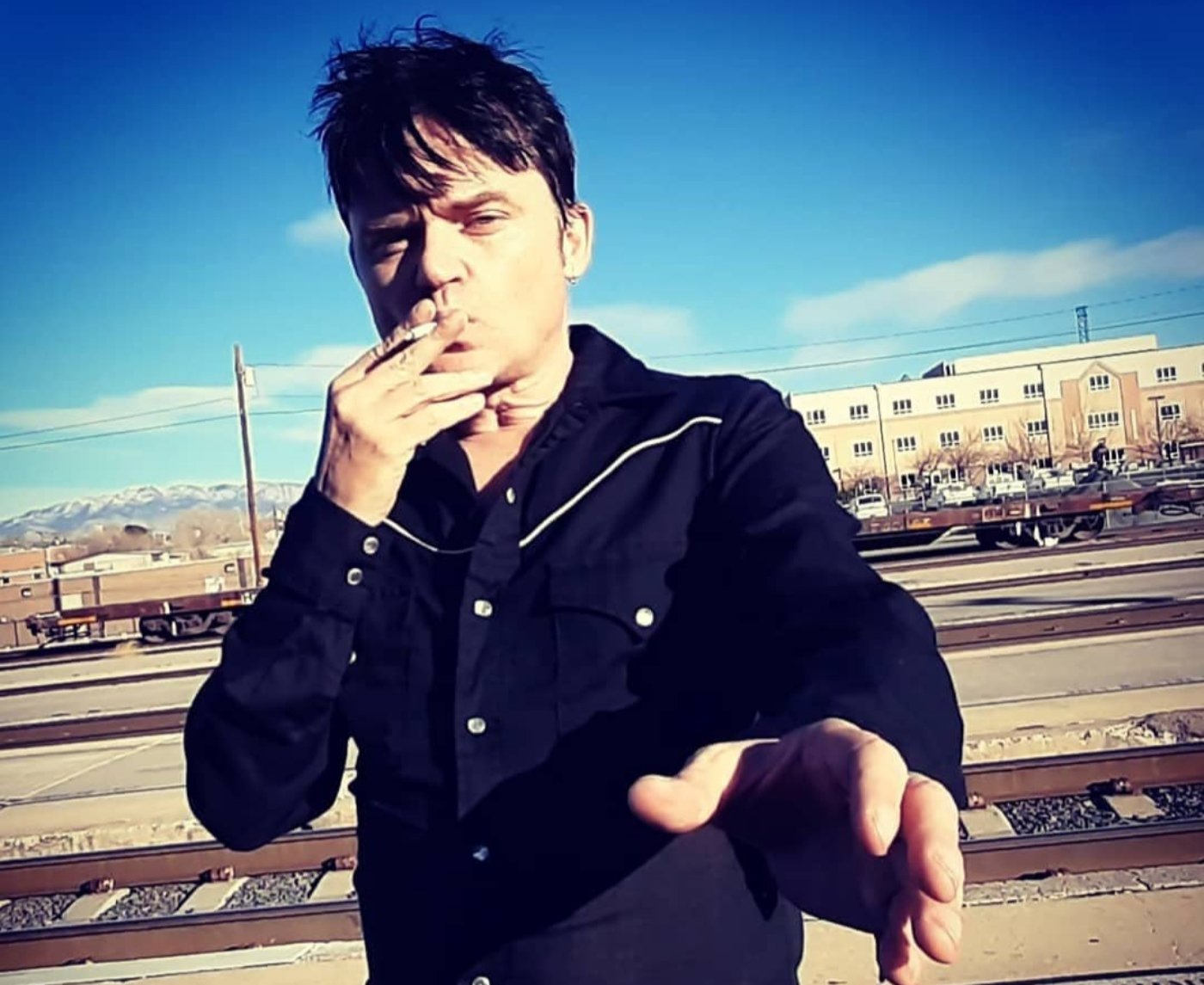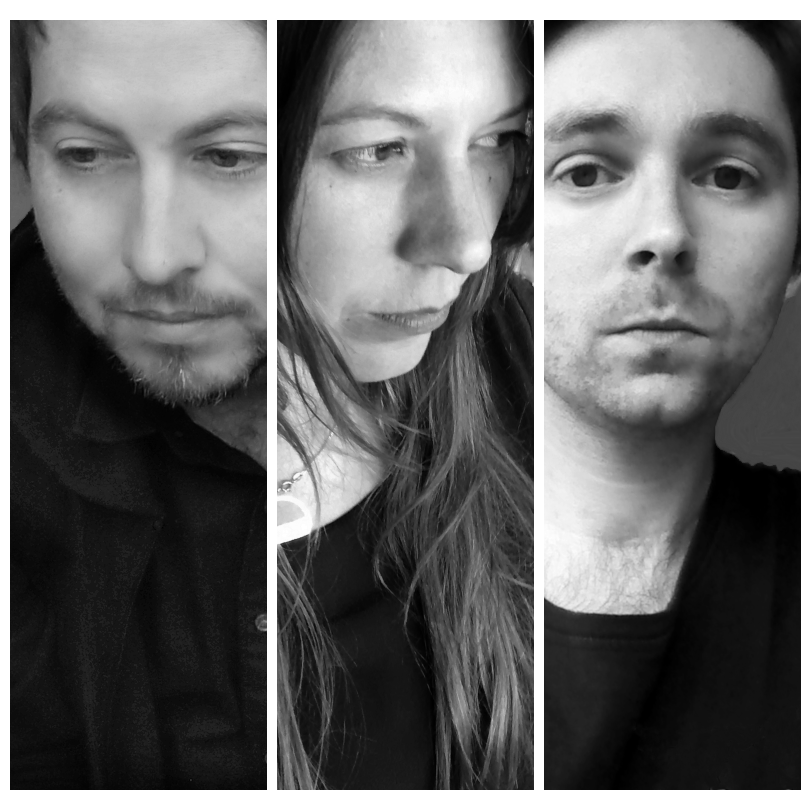Fortress Europe & Moonflower: Interview + New EP '1925-1988'
KATIE BROWN - 13 DEC 2021
PHOTO SUPPLIED
Conjuring up imagery of sultry nights where the air is thick with exotic scents and the thrill of mysticism, new EP 1925-1988 by Fortress Europe and Moonflower is a delirious expedition through its three singles “Organ Grinder”, “Sigilator” and “Pothos”. Cinematic and rich with Eastern European undertones, the EP translates as something of a lucid dream where reality and the unreal merge within the subconscious and become indistinguishable from each other in a tantalising ode to existentialism and sensuality.
The result of a lockdown collaboration, 1925-1988 combines the elliptical lyricism and gothic vocal stylings of Moonflower’s Scott Satherley (Demons of Noon) with Leon Radojkovic of Fortress Europe’s lush and mesmerising take on traditional Eastern European folk instrumentation. The likes of Turkish saz and Croatian tamburica are woven throughout, backed with accordions, strings, surf guitar, hypnotic percussion and dark beats: together, the unique and experimental combination of elements creates a perfect sonic maelstrom, and it’s one that is especially delicious to tumble into.
Complementing the work is rich imagery and visuals by Satherley, who is an accomplished visual artist. Weaving elements of Balkan architecture together with traditional embroidery patterns and religious illumination, he uses cinematic fragmentation and superimposition to mirror the kaleidoscopic sense of hypnotic allure held within the music.
Listen to the EP and read our interview with Fortress Europe’s Leon Radojkovic and Moonflower’s Scott Satherley below.
Discover more on Instagram | Facebook | Spotify | YouTube | Bandcamp | Website
KATIE: FIRST THINGS FIRST, LET’S DELVE INTO THE TITLE OF THE EP: THAT’S A VERY SPECIFIC DATE BRACKET! WHAT’S THE SIGNIFICANCE?
SCOTT: For me it’s about life and death. We know that in-between those dates someone (we will never tell who) lived their life fully and marvellously, but that life in question is bookended by a beginning and an end, represented by those specific years. The numbers become birth-life-death.
LEON: For me it also nicely encapsulates a lot of the background thinking that informs my work with Fortress Europe - basically the broad swathe of 20th Century history. An unprecedented time of profound social and political transformation, often accompanied by violent upheaval.
TELL US A LITTLE ABOUT YOUR BACKGROUNDS: WAS MUSIC A SIGNIFICANT PART OF YOUR LIVES GROWING UP?
LEON: I definitely remember music being very present while I was growing up, my parents were into a lot of soul, funk and RnB, stuff like The Neville Brothers, Aretha, Nina Simone, Van Morrison, but I really didn’t pick up an instrument until I hit high school, and made friends with a guy who could play guitar. Then I got the bug bad.
SCOTT: Listening to music was synonymous with my childhood. It started with Abba and Michael Jackson but shifted gears when I heard Guns N Roses and Metallica around the age of 11. From there the guitar became a part of my identity.
WHAT COMPELLED YOU TO LEARN HOW TO PLAY THE WIDE RANGE OF INSTRUMENTS THAT YOU DO?
LEON: I suppose I've never been someone with any particular interest in mastering an instrument. I’m more interested in composition and just making noise. I love playing guitar for example, but I have zero desire to spend hours a day practicing. I can’t think of anything worse. Picking up a new instrument though is always energising, and I find the natural character of different instruments - what it’s made of, how you play it, how it produces sound - leads to different kinds of ideas emerging.
WHAT’S THE BACK STORY TO FORTRESS EUROPE AS AN ACT?
LEON: Fortress Europe is really driven by my interest in Balkan and Eastern European musical traditions. This is then fused with a whole slew of other influences and interests, underlined by a sort of avant-guard or experimental sensibility. I’m interested in using features of older folk and traditional music to explore new forms and sonic possibilities.
HOW DID THE COLLABORATION WITH MOONFLOWER COME ABOUT?
LEON: Scott and I have known each other for years. Scott went through a period recently of getting into 1960s and 70s Turkish psychedelic rock (which is amazing). When I came up with the original little seed for what eventually became “Organ Grinder”, it felt like it was ballpark in that world, so I thought I'd send it through to him to see whether he might be interested in laying down some vocals. The rest, as they say, is history.
THEMATICALLY, ‘DARKLY DELIRIOUS’ IS AN EXCELLENT DESCRIPTION OF THE JOURNEY THROUGH THE TRIO OF TRACKS – HOW DID YOU GO ABOUT CULTIVATING THAT COLLABORATIVELY?
LEON: I think part of it is really down to the fact that we wrote and produced the tracks in the midst of lockdown. It’s been a tough time for the arts. I think the sort of foreboding but slightly manic atmosphere was the natural result of that situation. After each tracking session my little home office looked like it had been hit by a tornado full of scrap paper, stringed instruments, synths, accordions, percussion and vape pods.
THE PROJECT IS THREADED WITH BALKAN MUSICAL TRADITIONS AND REFERENCES, BOTH IN THE MUSIC ITSELF AND IN THE ACCOMPANYING VISUALS BY SATHERLEY. WHAT DRAWS YOU TO THESE TRADITIONS?
LEON: I suppose what it it really boils down to is that I find the Balkans to be a fascinating crucible of “Eastern” and “Western” art, music and culture more broadly, where you can find all sorts of weird and interesting blends and syntheses. It sort of gives lie to the idea that these are cleanly discreet concepts or categories in the first place.
DO YOU HAVE FUTURE PLANS WITHIN THIS COLLABORATION IN PARTICULAR? WILL YOU TOUR THE EP?
LEON: We are definitely looking at putting together a crossover Fortress Europe/Moonflower show in the near future.
AND HOW ABOUT FOR YOU BOTH IN GENERAL, WITH YOUR SEPARATE ACTS? WHAT’S NEXT?
LEON: We've got an album in the works, which all going well will be out early next year.
SCOTT: Moonflower is in it’s early days but we plan on releasing a full album in 2022 and gigging. It is more Freak Folk and Gloomy Country music but beautiful nonetheless.


![[Friday Feature] Valere: Interview & Review of Single/Video ‘Lily’s March’](https://images.squarespace-cdn.com/content/v1/60df978127837427ee475bb1/1712873492906-GFSK6SW4FJ2Z2STOJVAM/Valere+-+Photo+Credit+Hayden+Graham+%281%29.jpg)

![[Video Premiere] Sig Wilder & Friends: Video for ‘Texasman’ + Interview](https://images.squarespace-cdn.com/content/v1/60df978127837427ee475bb1/1699397388451-3GDFG0FOA5T5WPA33ANE/IMG_2393.JPG)


![[International] Jackson VanHorn Releases New EP ‘Liminal Music, Vol. 1’](https://images.squarespace-cdn.com/content/v1/60df978127837427ee475bb1/1695708847770-UF5H8G2X7N9Q9KF22TA5/Jackson+VanHorn+Liminal+Music+Vol+1.jpeg)

![[Friday Feature] Jazmine Mary: Interview + New Album ‘Dog’](https://images.squarespace-cdn.com/content/v1/60df978127837427ee475bb1/1686280012940-2OBAFHQ9HIJFIVNYE3CZ/JazmineMary_Album+image+no+text+-+Credit+-+Jim+Tannock.jpg)
![[Video Premiere] Emily Rice Releases New Single/Video ‘Warenoa’](https://images.squarespace-cdn.com/content/v1/60df978127837427ee475bb1/1685044212209-9X8UTD0I22FY3LAGKDHI/Press+Shot_+Photo+Credit%2C+Charles+Looker.jpg)


![[Australia] Benny Time: Interview + New Album ‘Benny and Friends’](https://images.squarespace-cdn.com/content/v1/60df978127837427ee475bb1/1653689671831-U73A00Y16B4PYUPIEY7X/Benny+Time+3596.jpg)








